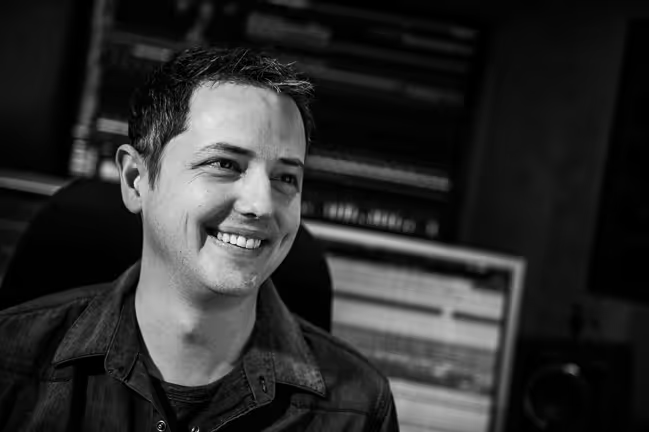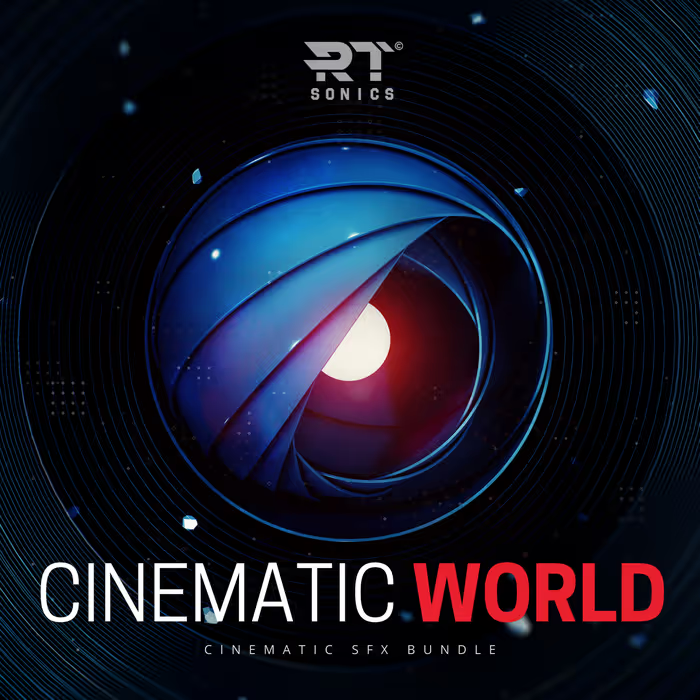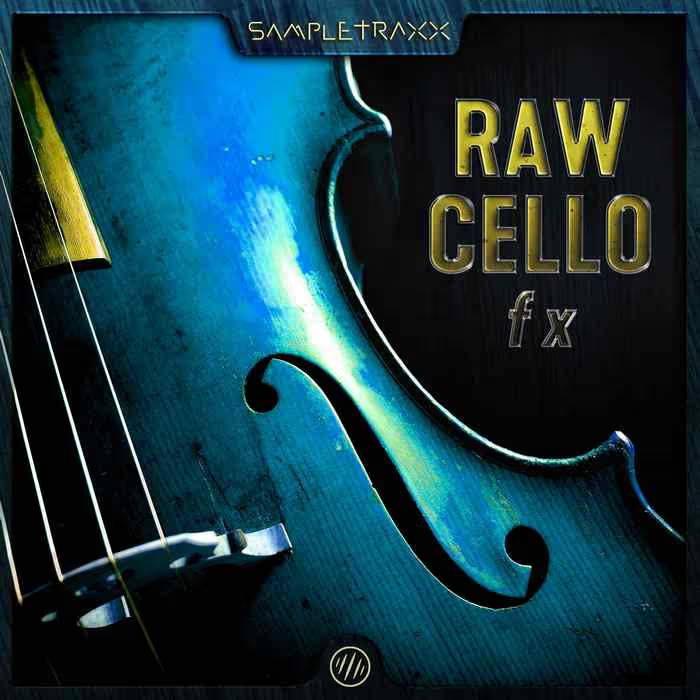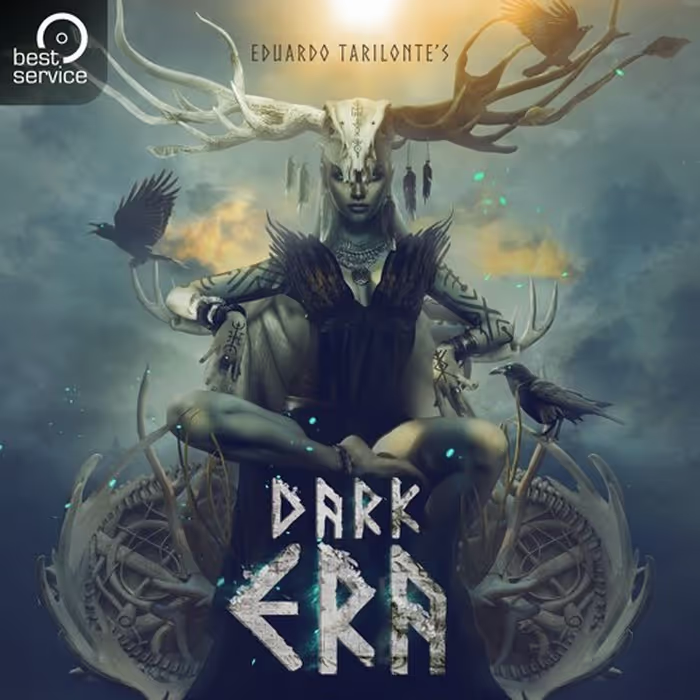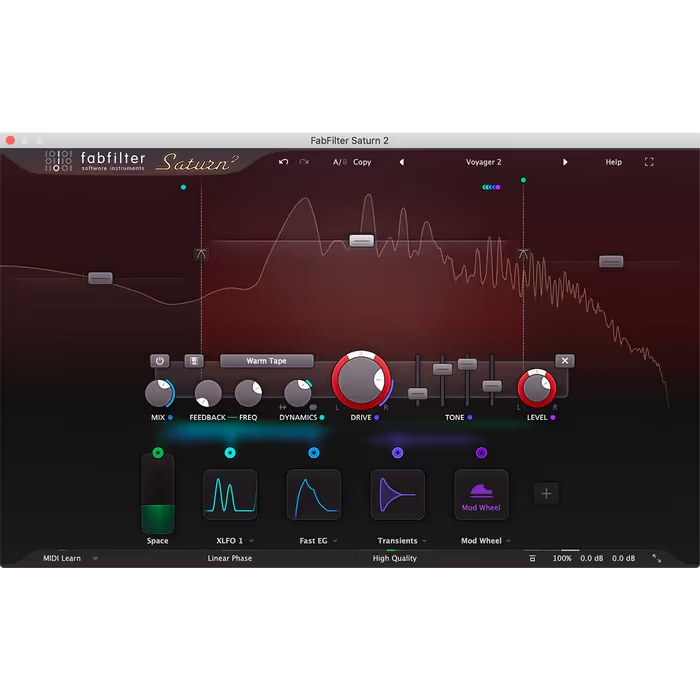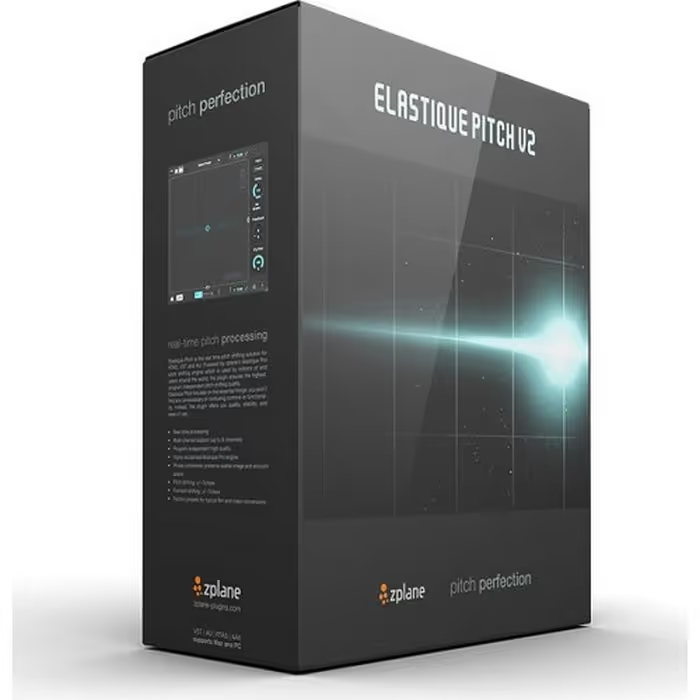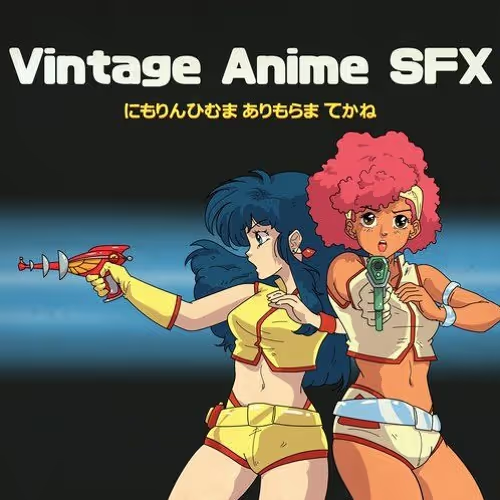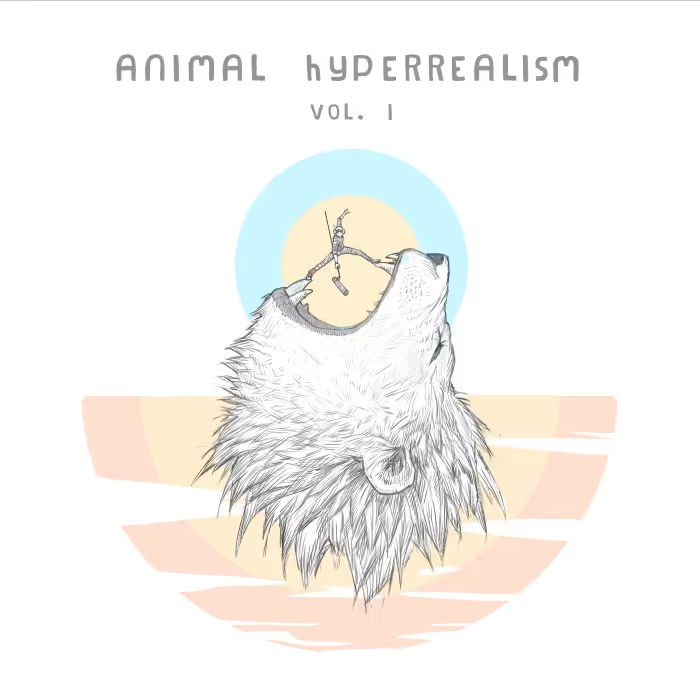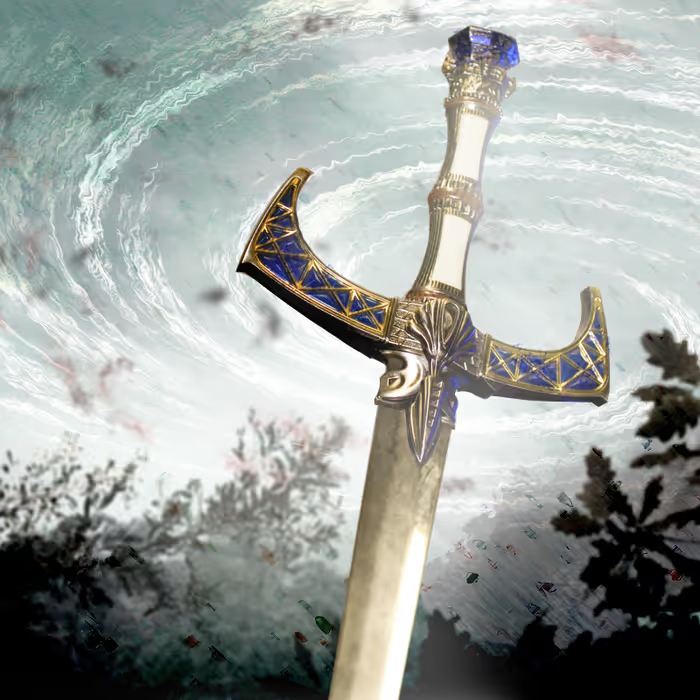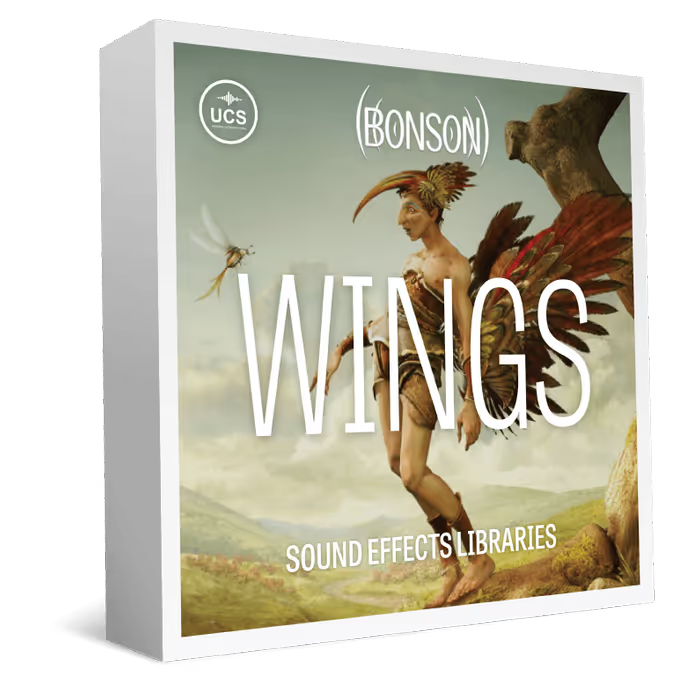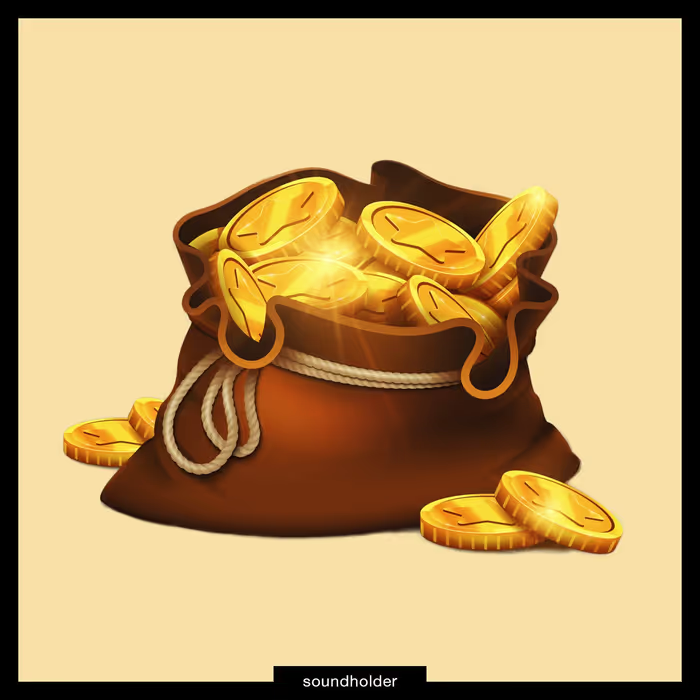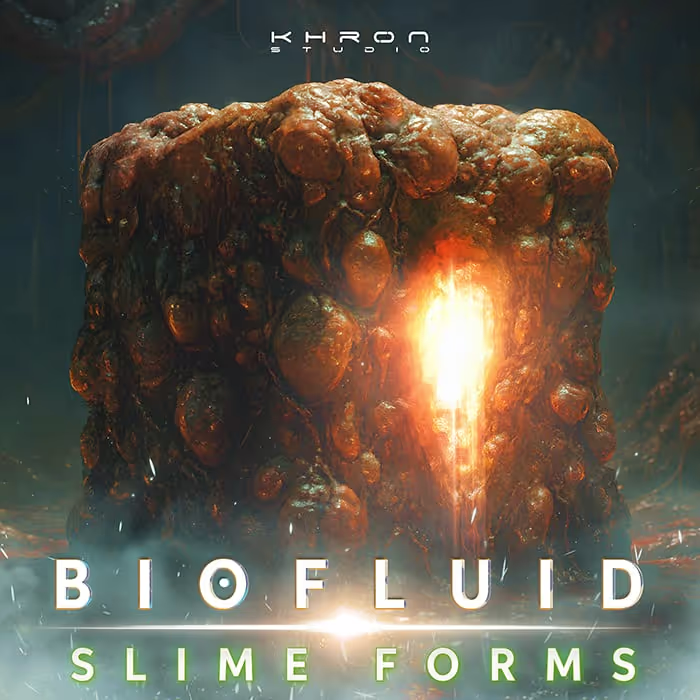The Composer Success Series – and what it’s all about:
The Composer Success Series is dedicated to helping you succeed as a composer – offering inspiration, advice on getting started and advancing your career, creative tips and tricks, helpful resources and lessons learned, from some of the industry’s most successful composers for film, games and beyond.
Quick navigation:
• Jump straight to the Jason Graves interview
More interviews in the Composer Success Series:
We have a lot more interviews coming up for you in the Composer Success Series – and will be releasing them all as a completely free e-book.
Want to receive the free book as soon as it’s out?
Enter your details in the form and we’ll send you a link to the book as soon as we release it. The list won’t be used for anything else, and you can of course unsubscribe at any time.
Two-time British Academy Award-winning composer Jason Graves is renowned for his textural concept scores and innovative orchestration in cinematic narrative games such as The Dark Pictures Anthology, Moss, Tomb Raider, Far Cry Primal, Until Dawn, The Order: 1886 and Dead Space. His repertoire is truly diverse, from aleatoric and sweeping orchestral journeys in space, to haunting and immersive soundscapes in historical, gothic and supernatural worlds, to manipulating ancient instruments in a Stone Age natural environment and whimsical waltzes for an intimate pastoral palette.
Most recently, Jason scored interactive drama The Dark Pictures: Little Hope, the second installment in Supermassive’s intense survival horror anthology series. Starring Will Poulter (The Maze Runner, Midsommar), the standalone story takes place in multiple time periods and settings including the 17th Century during the Salem Witch Trials. Jason also returns to the mysterious rings of Saturn to score Ready At Dawn’s A.I. psychological thriller Lone Echo II. In television, his music can currently be heard in the DC Comics’ series Swamp Thing on CW.
Learn more about Jason’s work at jasongraves.com
• How did you get started in the composing industry? What was your first game score and what was that experience like for you?
I worked in film, TV, and corporate music for about six years before I discovered music for games. I had 2-3 years of local, indie games before my first “legit” game score, which was The Hobbit released in 2003.
I had 2-3 years of local, indie games before my first “legit” game score, which was ‘The Hobbit’ released in 2003.
I was originally brought in to tackle all of the live orchestra in the score. At first I was simply consulting and advising on orchestration and sample libraries for the demos. That quickly led to a more permanent role on the music team which included music composition, arranging, music prep, and conducting the entire live score over multiple recording sessions.
In turn, my experience on The Hobbit is what led to my first solo outing as a composer, which was King Arthur in 2004, based on the film of the same name.
• Any advice you’d share on how to land a composing job in the game industry?
I know I was only brought onto the music team for The Hobbit as a direct result of my openness and willingness to share what many considered “trade secrets” about sample libraries and Hollywood-style orchestral composition techniques. I still believe in that kind of transparency today and honestly think it can only advance your career.
I also believe business connections stem directly from personal connections…
I also believe business connections stem directly from personal connections and go out of my way to get to know as many people in games as I can. Even at annual game conventions like GDC, I’m a lot more focused on connecting on a personal level than talking about music.
• What were some essential lessons you’ve learned throughout your career?
1. Don’t pigeonhole yourself as a “game music composer.” Keep an open mind to other music opportunities! As a matter of fact, don’t even restrict yourself just to music. I’ve recorded hundreds of radio voiceovers, produced and recorded bands in the studio, made live archival recordings at the Montreal Jazz Festival, recorded and mixed sound design for 5.1 in-game cinematic, worked on signature sound design logos for Intel (remember those “Intel Inside” commercials from the 90’s?), and even shot and produced commercials and corporate videos for regional businesses and politicians. That may seem far removed from composing an action cue for a game, but everything else I did besides writing game music actually made me a better game composer. Plus, it paid the bills and kept the creative juices flowing!
…everything else I did besides writing game music actually made me a better game composer.
2. Gear does not matter. Software choices do not matter. All that matters is the emotion your music evokes when someone listens to it. While that may be a fairly sweeping statement, it’s completely true!
3. In the beginning of your career, you do not have to know how to technically implement game audio in order to compose music for games. But it never hurts! Don’t be afraid to admit what you don’t yet know — everything I learned was from asking direct questions to the audio team I was working with. And not just questions about music implementation — I still ask just as many questions about sound effects design and implementation. Audio people love talking about their work and sharing tips!
…if I were starting out in games today the first thing I would do is get accredited with the Wwise online program.
4. In contrast to the previous advice, if I were starting out in games today the first thing I would do is get accredited with the Wwise online program. This is not necessarily to better secure a composition gig, but to make myself more well-rounded in all things game audio. And I would learn sound design and basic VO recording. As a result, I would be doubling or even tripling my chances at getting work if I could create music and sfx, record VO AND implement everything, if needed.
• Any favorite tricks and workflow tips that help when composing for games?
I like to have a captured playthrough of the current level I am working on, which I usually just leave on loop in the background as I compose. Or, if I need something more specific, like a battle scene, I will drop it into my DAW and sync that one scene I’m currently focusing on.
You can never be too well-informed or be brought onto a project too early!
I also enjoy playing the game as I’m working on it and encourage developers to share as much about the game as they can. You can never be too well-informed or be brought onto a project too early!
• What are your favorite sites and resources for composers?
I love Computer Music magazine for the technical side of things. Their primary focus is dance-oriented music, but I’ve found all their production techniques, mixing ideas, and sound design approaches translate very well to the world of instrumental underscore. They also include 100+ plug-ins and virtual instruments for free in every one of their issues.
I still believe Dover scores are the best resource for classic orchestration or composition information. Some of them can be had for less than $20 and they are literally the basis of our “modern” film and game music.
There is also Omni Music Publishing, who have been ramping up their film score releases in recent years. Twenty years ago, I never would have thought you would be able to purchase an officially engraved copy of Basic Instinct, North By Northwest, or How To Train Your Dragon. Unbelievable!
• What’s one special thing you did to become a successful composer?
…embrace who you are and where you come from, because you are unique!
I don’t think there’s any one specific thing anyone could allocate to a successful career. But after about 10 years of music in games, I finally realized that everything I had once considered to be my biggest handicap as a composer — being a drummer (and not something more directly relatable, like a pianist or string player) — was actually my greatest strength. So I embraced it and now regularly record live drums, percussion, and anything else I can find (piano, strings, guitars) on all my scores.
So my advice would be to embrace who you are and where you come from, because you are unique! And if you hold true to your heritage, culturally and musically, your output will be unique as well.
↑ Back to top
[tweet_box]Jason Graves on what it takes to get started & succeed in composing for Games[/tweet_box]
Highlights from A Sound Effect - article continues below:
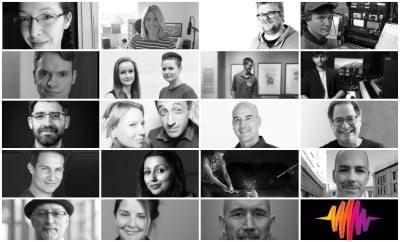 Want to branch out beyond composing? Learning new sound skills can open up opportunities for additional revenue – and with the (entirely free) 60+ page Sound Success Guide, you get insights from 20 industry experts on how to get started and succeed in 18 different types of audio jobs:
Want to branch out beyond composing? Learning new sound skills can open up opportunities for additional revenue – and with the (entirely free) 60+ page Sound Success Guide, you get insights from 20 industry experts on how to get started and succeed in 18 different types of audio jobs:Click to download (.zip)
Click to download(.PDF)
↑ Back to top
A big thanks to Jason Graves for sharing their valuable insights with us!
Want the free Composer Success Series e-book as soon as it’s released? Sign up to be the first to get it here
More interviews in the Composer Success Series:
• Charlie Clouser – composer on the Saw franchise, Fox’s Wayward Pines, CBS’s Numb3rs, & NBC’s Las Vega
• Sherri Chung – composer on The CW’s Batwoman and Riverdale, NBC’s Blindspot, and CBS’s The Red Line
• Cindy O’Connor – composer on ABC’s Once Upon a Time
• Inon Zur – composer on Fallout, Dragon Age, Prince Of Persia, Outriders, and The Elder Scrolls.
• Pinar Toprak – composer on the Captain Marvel, The Wind Gods, and The Tides of Fate
• Nainita Desai – composer on The Reason I Jump, American Murder, and For Sama
• Jonathan Snipes – composer on A Glitch in the Matrix, The El Duce Tapes, and Murder Bury Win
• Gareth Coker – composer on the Ori franchise, Studio Wildcard’s ARK: Survival Evolved, & the upcoming Halo Infinite.
• Elyssa Samsel and Kate Anderson – composers on “The Book Thief,” “Between the Lines,” & Disney Animation’s Olaf’s Frozen Adventure
• Daniel Kluger – composer on the play “The Sound Inside,” “Oaklahoma!” (2019), & “Judgement Day”
• Jason Graves – composer on Dead Space, Tomb Raider , Moss , and more.
• Peter McConnell – composer on Hearthstone: The Boomsday Project, Broken Age Act 2 (2013), and Psychonauts 2.
• Winifred Phillips – composer on Lineage, Assassin’s Creed, Total War, God of War, The Sims, and LittleBigPlanet.
• Ronit Kirchman – composer on Evil Eye, Limetown, and The Sinner.
• Zach Robinson – composer on the Impractical Jokers movie, the documentary series Artbound, Quibi’s Die Hart, Norwegian comedy The Oilfund, Josie and Jack, and the video game Cobra Kai: The Karate Kid Saga Continues.
• Alec Puro – composer on Wicked Tuna, Black Summer, The Crew, Running Wild with Bear Grylls, and more.
• Ariel Marx – composer on American Horror Stories on FX, Children of the Underground mini-series on FX, and the Roku Original docu-series What Happens in Hollywood.
• Matthew Earl – composer on Virtual Reality games/experiences such as the Star Trek: Dark Remnant and Men in Black: Galactic Getaway VR simulation rides.
• Zach Robinson – composer for the Evermore Adventure Park, Knott’s Berry Farm, Queen Mary Chill, Dreamland (UK), Los Angeles Haunted Hayride, Dent Schoolhouse, and The Void 4D virtual reality games.

